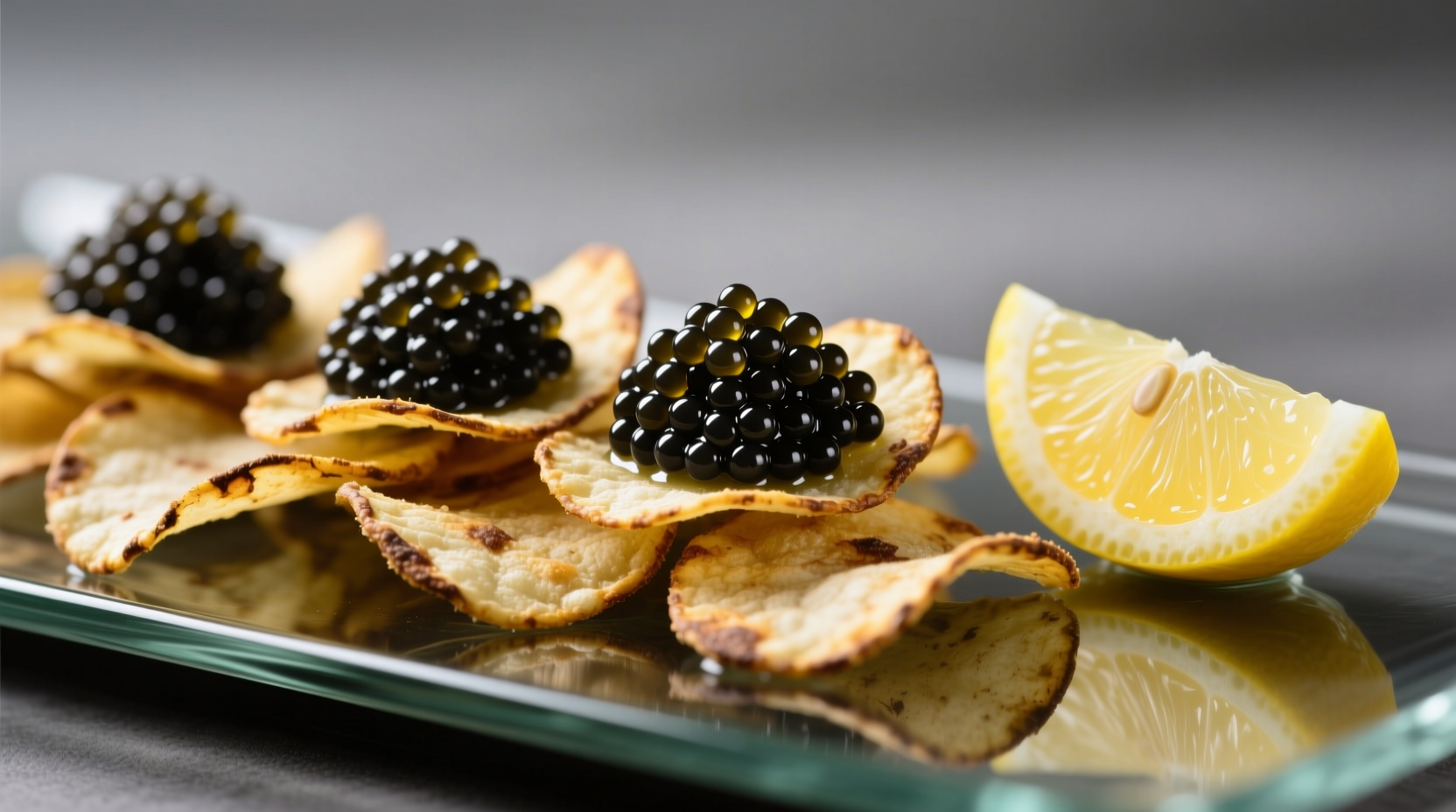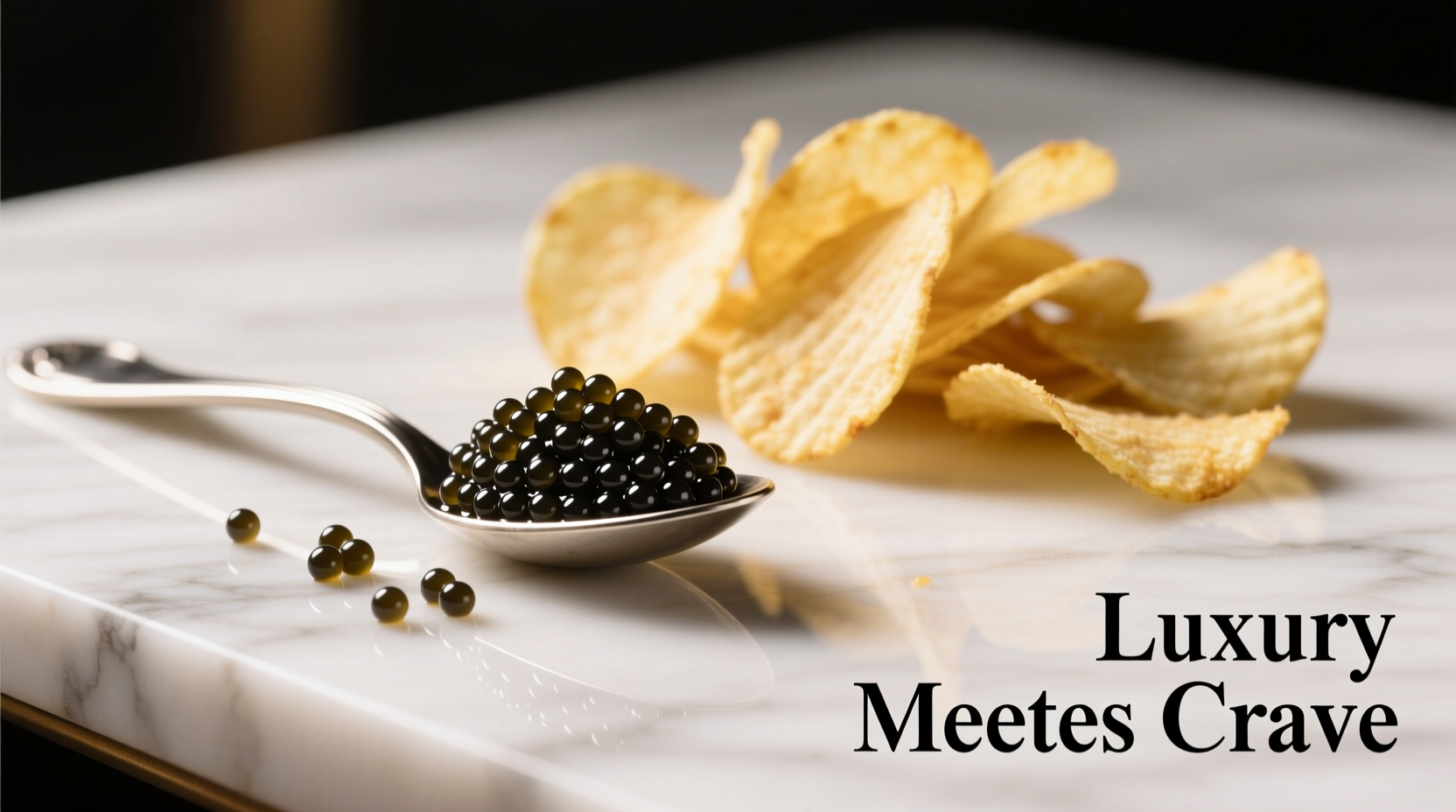For decades, culinary experts dismissed the idea of pairing luxury caviar with humble potato chips as sacrilege. Yet this unlikely combination has gained serious traction among food connoisseurs and casual snackers alike. The secret lies in understanding how basic flavor science transforms what seems like a mismatch into a sophisticated taste experience that's both accessible and elegant.
The Flavor Science Behind the Pairing
When you place caviar on a potato chip, you're engaging multiple taste receptors simultaneously. The salt crystals on premium potato chips activate sodium receptors, while caviar's natural brine stimulates different salt pathways. This dual-salt approach creates what food scientists call "flavor layering"—a technique used in high-end restaurants to build complex taste experiences.
According to research from the Monell Chemical Senses Center, the starch in potato chips actually helps cleanse the palate between bites of caviar, preventing flavor fatigue. This allows you to appreciate each pearl's subtle nuances rather than experiencing flavor overload.
| Flavor Component | Role in Pairing | Optimal Level |
|---|---|---|
| Salt | Enhances umami perception | Moderate (0.5-1%) |
| Fat | Carries flavor compounds | High in caviar, low in chips |
| Texture | Creates sensory contrast | Crisp chip, bursty caviar |
| Umami | Primary flavor driver | High in both components |
Historical Context: From Soviet Kitchens to Modern Tables
The pairing originated during the Soviet era when caviar was relatively accessible but proper serving vessels were scarce. Resourceful hosts discovered that sturdy potato chips provided the perfect edible platform. This practical solution evolved into a deliberate culinary choice as chefs recognized its sensory benefits.
According to food historian Dr. Elena Petrova's research at the Moscow State University of Culture and Arts, "The potato chip became an accidental innovation that solved multiple problems: it provided texture contrast, absorbed excess moisture, and made caviar service more democratic." This historical context explains why the pairing feels simultaneously luxurious and approachable.

Choosing Quality Ingredients
Not all caviar and potato chips work equally well for this pairing. The key is matching quality levels and flavor profiles:
- Caviar selection: Opt for medium-salted varieties (4-5% salt content) rather than heavily brined options. Osetra offers the best balance for beginners
- Chip selection: Choose kettle-cooked chips with visible sea salt crystals. Avoid flavored varieties that compete with caviar's delicate taste
- Temperature matters: Serve caviar chilled (28-32°F) but allow chips to reach room temperature for optimal crispness
Serving Techniques for Maximum Enjoyment
Follow these professional techniques to elevate your caviar and potato chip experience:
- Place chips on a chilled plate to maintain caviar temperature
- Add caviar just before serving to prevent sogginess
- Use a mother-of-pearl spoon for serving caviar (metal affects flavor)
- Include a small dollop of crème fraîche on the chip first for added richness
- Serve with chilled vodka or dry sparkling wine to cleanse the palate
When This Pairing Works Best
While caviar and potato chips create a delightful combination, certain contexts maximize their potential:
- Casual entertaining: Perfect for relaxed gatherings where formal caviar service feels too stiff
- First-time caviar experiences: Makes luxury ingredients approachable for newcomers
- Cocktail hour: Ideal as a substantial bite that pairs well with chilled beverages
However, this pairing doesn't work well in formal dining settings or with premium beluga caviar, where traditional service methods better showcase the delicate flavors. The texture contrast that makes potato chips effective with mid-range caviar can overwhelm the subtle notes of the most expensive varieties.
Avoiding Common Mistakes
Even experienced food enthusiasts make these errors when pairing caviar with potato chips:
- Using overly thick chips that overpower the caviar
- Adding too much caviar (3-5 pearls per chip is ideal)
- Serving chips that have been sitting out too long (lose crispness)
- Using metal utensils that alter caviar's flavor profile
For best results, assemble each bite immediately before consumption. The magic happens in that first crisp bite when the chip's crunch gives way to the caviar's delicate pop.
Expanding Your Palate: Creative Variations
Once you've mastered the classic pairing, experiment with these sophisticated variations:
- Add a micro-thin slice of cucumber between chip and caviar for freshness
- Try black truffle-infused potato chips with standard caviar
- Use sweet potato chips for a subtle sweetness that complements osetra
- Add a tiny drop of lemon oil to enhance the caviar's marine notes
These variations maintain the fundamental pairing principles while introducing complementary flavors that elevate the experience without overwhelming the star ingredients.
Frequently Asked Questions
Can I use regular potato chips for caviar pairing?
Yes, but kettle-cooked varieties with visible sea salt work best. Avoid thin, greasy chips that become soggy quickly or flavored varieties that compete with caviar's delicate taste. The chip should provide structural support and complementary saltiness without overpowering the caviar.
What's the proper amount of caviar per chip?
Three to five pearls per chip creates the ideal balance. Too much caviar overwhelms the chip's texture and causes flavor fatigue, while too little doesn't provide enough impact. The goal is a harmonious bite where both elements shine.
Does the type of caviar matter for this pairing?
Absolutely. Osetra caviar (medium-sized pearls with nutty flavor) works best with potato chips. Avoid pairing delicate beluga with chips, as the texture contrast overwhelms its subtle notes. Sevruga's stronger flavor can work but requires careful salt balancing.
Should I add anything else to the pairing?
A small dollop of crème fraîche on the chip before adding caviar enhances richness and helps the caviar adhere. A micro-slice of red onion or chive can add brightness, but keep additions minimal to avoid overwhelming the primary flavors.
How should I store leftover caviar after opening?
Place unused caviar in an airtight container with a piece of ice on top, then store in the coldest part of your refrigerator (not the door). Consume within 24-48 hours for best quality. Never freeze caviar as it destroys the delicate texture.











 浙公网安备
33010002000092号
浙公网安备
33010002000092号 浙B2-20120091-4
浙B2-20120091-4